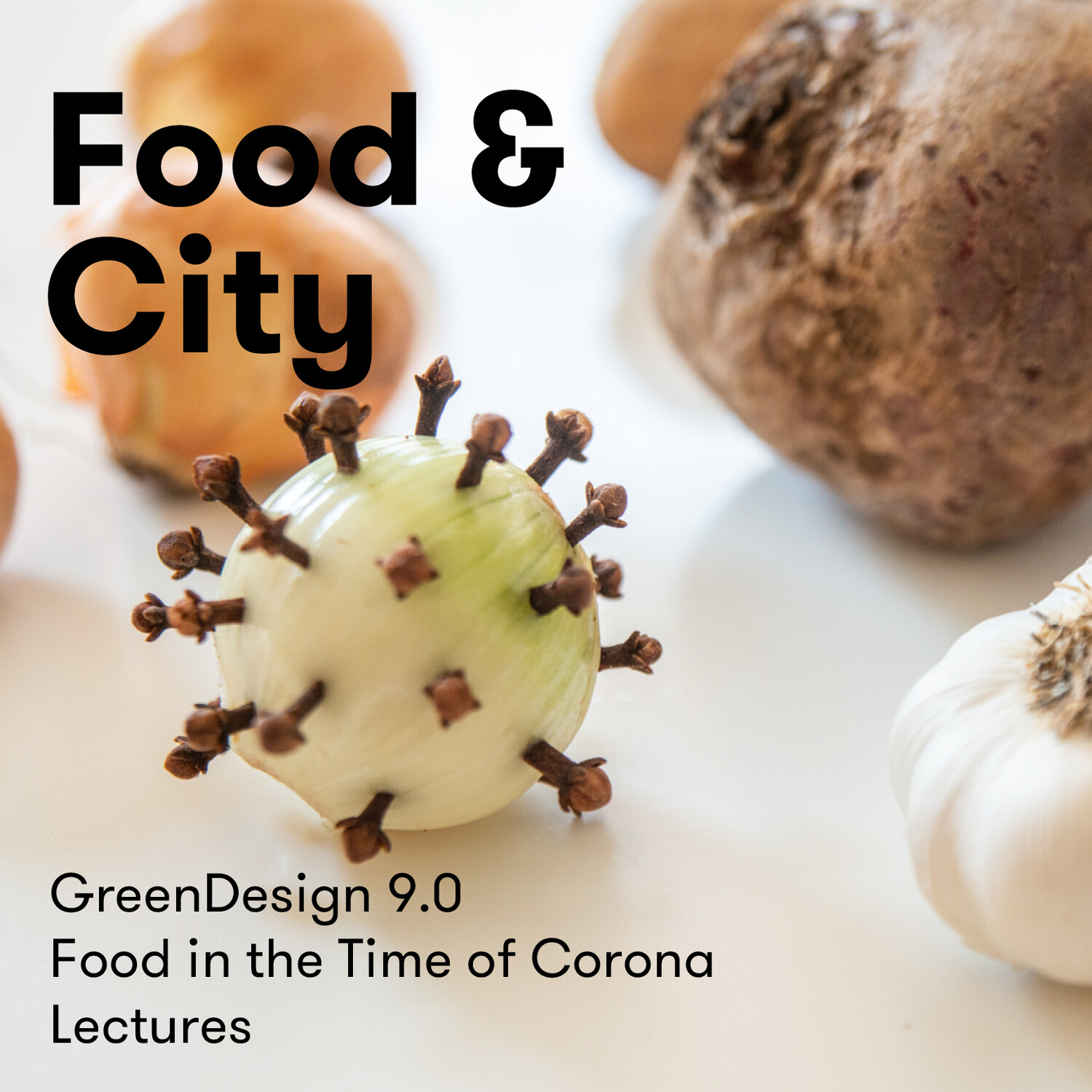
Week II – Food & City
04.05.2020 14 - 16h ### Kantine Zukunft Berlin Support for the transformation of the community catering
In 2016, the Berlin state government has set itself the goal in its coalition agreement of significantly increasing the proportion of organic food in day-care centres, schools, canteens, refectories and catering in public institutions. To this end, a model project was to be launched which, through training and advice, would show how canteen kitchens and caterers can cook with more organic, fresh and seasonal products. The Kantine Zukunft Berlin is this project. Copenhagen was the godfather with its long and successful work. Currently, 9 chefs and scientists* are working on developing the Danish idea into a Berlin model. Through inspiration, support and advice, the kitchens are to be helped to develop a modern offer that increases good food for the guests and the demand for bio-regional food for the Berlin region. Dr. Philipp Stierand is a spatial planner and has worked in the natural food industry for almost two decades. He did a part-time doctorate on the relationship between the city and nutrition. Philipp Stierand is the founder of the blog Speiseräume (Dining Rooms), which has been in existence for 10 years, managing director of the consulting company Speiseräume and head of the Kantine Zukunft Berlin. He holds a lectureship for agricultural and food policy at the DHBW Heilbronn. ####
PrinzessinnengartenUrban gardens as places of learning for sustainable urban-rural relations
Marco Clausen describes the beginnings and development of the Prinzessinnengarten at Moritzplatz since 2009 and the defense of this green open space against privatisation and investor plans. In his view, the role of urban gardens is less about local self-sufficiency than about their function as places of exchange and learning. How can we make the relationship between cities and regional and global rural areas more ecologically and socially just in the face of the climate catastrophe and the mass extinction of species? How can such self-organised places of learning serve to make our impact on rural areas, ways of life and nature visible, other voices audible and alternatives to industrial and agricultural activities conceivable? Marco Clausen co-founded the "Prinzessinengarten" in 2009 and the "Nachbarschaftsakademie" in 2015. Clausen organises events and workshops, international visitor programmes, study and research projects on the topics of the right to the city, urban-rural relations, food sovereignty, socially and ecologically sustainable urban development, common goods and socio-ecological transformation. His special focus is on self-organized forms of collective learning. ### SIRPLUS Taste it – Don’t waste it!
Mission: Making food saving mainstream In Germany every minute a truckload of edible groceries ends up as food waste. SIRPLUS is a social impact startup which brings surplus food back into the cycle and makes it accessible for everyone. What is the story behind our perfectly imperfect products and which level of the supply chain can we target? Our vision is a world where all produced food is being eaten and everyone has enough to eat. Find out how we can fight food waste together, because we all agree that the status quo is an humanitarian, environmental and economic catastrophe. SIRPLUS was founded by Raphael Fellmer and Martin Schott. Susanne Zander, the biologist with a master in global change management, is the head of the education department of SIRPLUS. The nutritionist Kay Antje Lorenz and Charlotte Wolf who is doing a voluntary service at the company complete her team. Together they organise workshops, panel discussions and seminars for all kinds of target groups that deal with everything around food waste. In this way they inspire society to rethink its idea of overproduction and overconsumption.